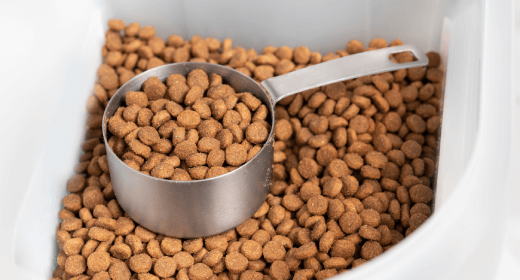

Sodium is an essential mineral for life. Found in the blood and in the fluid that surrounds cells, sodium maintains the cellular environment and prevents cells from swelling or dehydrating. Sodium is also important for maintaining proper nerve and muscle cell function.
Meat, poultry, fish, and eggs are good sources of sodium. It also may be included in commercial cat foods in the form of table salt (sometimes listed on the ingredient panel as salt). Salt is an important palatant for animals, as well as for people.
The Association of American Feed Control Officials recommends that dry cat foods contain at least 0.2% sodium for maintenance and to support normal growth and development. These are the minimum recommended levels.
While high sodium intake may cause increased thirst and water consumption, the extra sodium is excreted in cat urine.
Therefore, the sodium level in commercial pet foods is not a cause for concern in healthy animals.
A veterinarian may recommend decreasing a cat's sodium intake if the animal has some types of kidney, liver, or heart disease, in order to help decrease high blood pressure or the accumulation of excessive body fluid. Although older cats may be more likely to develop these diseases, healthy older cats do not require a low- or reduced-sodium diet.
The sodium level in our cat foods is appropriate for healthy cats. The sodium content in these foods is balanced in proper proportions with energy, other minerals, vitamins, fats, proteins, and carbohydrates.


Confused by the ingredient list on your kitten’s food? You’re not alone. Marketing pet foods that have “human-grade ingredients” is becoming commonplace. While appealing to many pet owners, it is important to be aware that the term “human grade” has no legal definition and is used primarily for marketing purposes.
Foods, typically meats, are labeled either as “edible” or “inedible, not for human consumption.” Once a food leaves the human food chain, even if it is of outstanding quality, it has to be labeled “inedible, not for human consumption.”
Therefore, meats used in pet food must be labeled as “inedible,” regardless of the source or quality of the meat. The only way to make a pet food with ingredients deemed “edible” is to never let the meat leave the human food chain and actually manufacture the pet food in a human food facility and transport it using human food trucks.
Therefore, advertising a product as containing “human-grade ingredients” is untrue if it is not manufactured in a human food facility.
However, just because a pet food isn’t marketed as being “human grade” does not mean that the ingredients are poor quality.